Headache in children
Headaches affect people of all ages – many adults remember having headaches as children. Headache in children can occur on its own (primary disorder) or as a result of another condition.
Primary headache disorders include migraine and tension type headache. The most common primary headache disorder is migraine without aura. The warning signs that sometimes come before the migraine, such as disturbed vision, strange taste or smells, or wobbliness, are referred to as an ‘aura’. Migraine without aura in children can be different to that in adults, in that they usually last for a shorter time and affect both sides of the head (bilateral).
Tension type headaches are the second most common primary headache disorder. These differ from migraines in that they last longer and happen more frequently than migraines but are less severe although they are often also bilateral.
Although rare, headaches can sometimes be caused by other conditions. Before a primary headache is diagnosed, clinical assessments and tests can rule out or confirm a secondary cause.
1. How common is headache in children and whom does it affect?
Up to 50 per cent of children aged seven years and up to 80 per cent of 15 year olds have experienced at least one headache. Before puberty, headache affects girls and boys in equal numbers, but after puberty about three times as many girls get headaches compared with boys.
2. What causes a headache or migraine?
The tendency to suffer from migraines is inherited. Someone else in a child’s family will suffer from them too. There can also be triggers. Some migraine sufferers can identify clear triggers. It is possible forthem to prevent attacks by avoiding these, but it is rarely so straightforward.
Some people experience dietary triggers where a migraine is initiated by eating a particular food. Dietary triggers are uncommon except for caffeine and alcohol. Doctors know that migraines are not caused by eye problems, other medical conditions, or having a particular type of personality.
It is much more usual for migraines to be brought on by lifestyle triggers. These can include stress, fatigue, missed meals, sleeping in and/or any disruption to sleep, and also spending too long on a computer. Unfortunately, these are all factors that are impossible to avoid completely.
For some people, the temperature of food (hot or cold) can trigger migraine.
3. How is headache diagnosed?
When a child with headache is seen by a doctor, he or she will have a thorough examination to try to work out what is causing it. The doctor will take a detailed medical history, asking about when the headaches started and which part of the head they affect. He or she will also ask about any other symptoms that occur at the same time, such as feeling sick, avoidance of light or seizures. A child’s past medical history is also important to try to identify any previous illnesses or current medical conditions that might trigger headache.
Other aspects of a child’s everyday life will be considered too, such as stress or problems at school or home. This will help in identify the triggers for headaches. If other people in the child’s family also have headaches or migraines this will also be discussed as some types of migraine can be passed on from generation to generation. The doctor will ask which headache treatments have been tried previously and to what degree they were helpful. The child’s physical condition will also be examined.
If a child’s medical history and physical examination do not raise any concerns, it is unlikely that further investigations will be needed.
4. What treatments are available?
Management of headache in children is multifaceted and involves a combination of approaches – making an accurate diagnosis, helping understand the condition, support at home and school, psychological help, identifying and avoiding triggers and medication.
Medication is of two types:
- Reliever – to use in the acute attack during or at the beginning of a headache.
- Preventive – taken every day to prevent them from occurring.
5. Medicines to treat the migraine and tension type headaches
- Ibuprofen and paracetamol are both safe to use in children to treat headache, unless advised otherwise by your doctor or pharmacist. Both should be used according to the instructions on the bottle or packet.
- Triptans are an alternative to regular pain relief such as ibuprofen and paracetamol. There are different triptans which are available in various formats, such as tablets, melts, nasal spray and injection. Triptans can cause tingling sensations, warm flushes or tightness.
6. Medicines to prevent migraine
Preventative treatment tends to be used if a child is getting regular and frequent migraine or headache which affects school attendance or daily life activities.
- Preventive medications fall broadly in to four major categories of medications – antihistamines, anticonvulsants, beta blockers
- Medication commonly used include cyproheptadine, propranalol, topiramate, amitriptyline and sodium valproate
- Flunarizine is believed to be an effective form of prevention for migraines.
7. Non-medicine treatments
Psychological ways of managing headaches can be very helpful. Sessions can either be on a one-to-one basis with a psychologist or in a group. The child might be asked to keep a diary to identify any emerging patterns, which is the trigger for headache or migraine. Learning ways of coping with headache pain can be helpful, such as relaxation, stress management and guided imagery.
8. What is the outlook for children with headache?
More research is needed to find out in more detail about the long term. In the majority, improvement or complete end to migraines by late teenage years is the norm. Finding a way of coping with headache can greatly improve quality of life.
Need Best Treatment for Headache ? Find Result oriented Treatment for headache in Ahmedabad at Neurokids. Get Best Headache Treatment in Ahmedabad for Headache Relief and Treatment for Migraine Headaches. Book Appointment today Treatment for Headache in Ahmedabad

